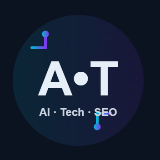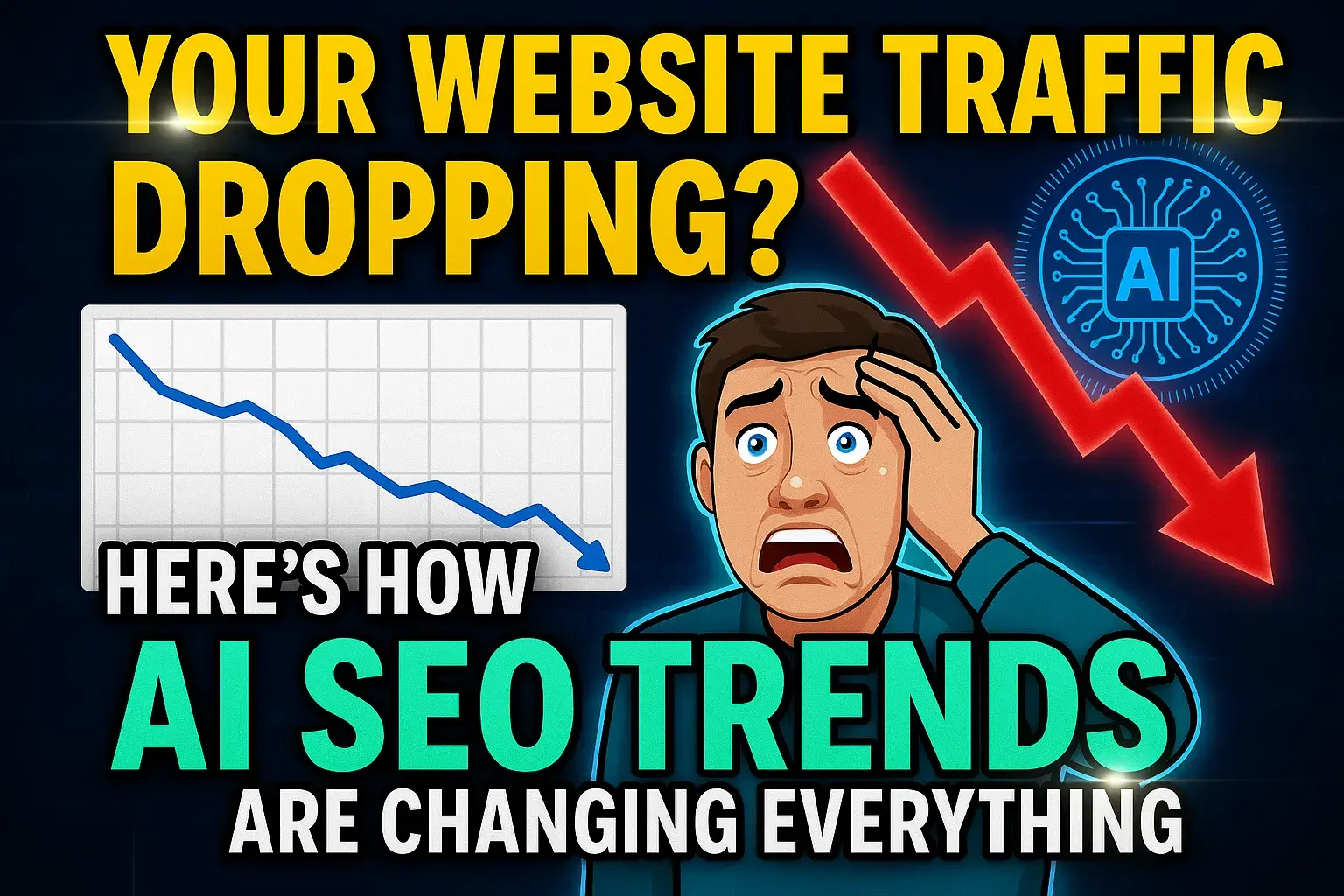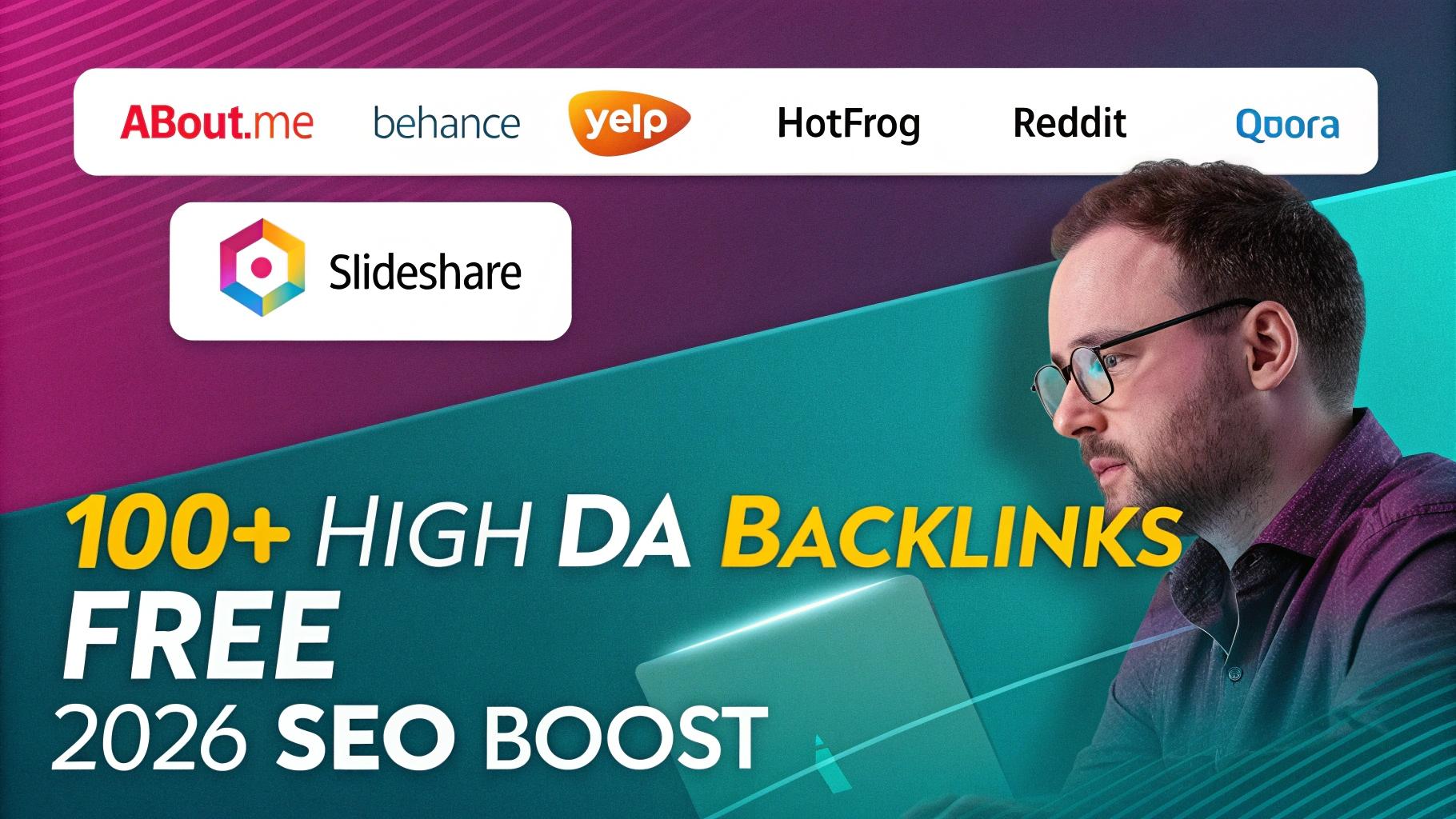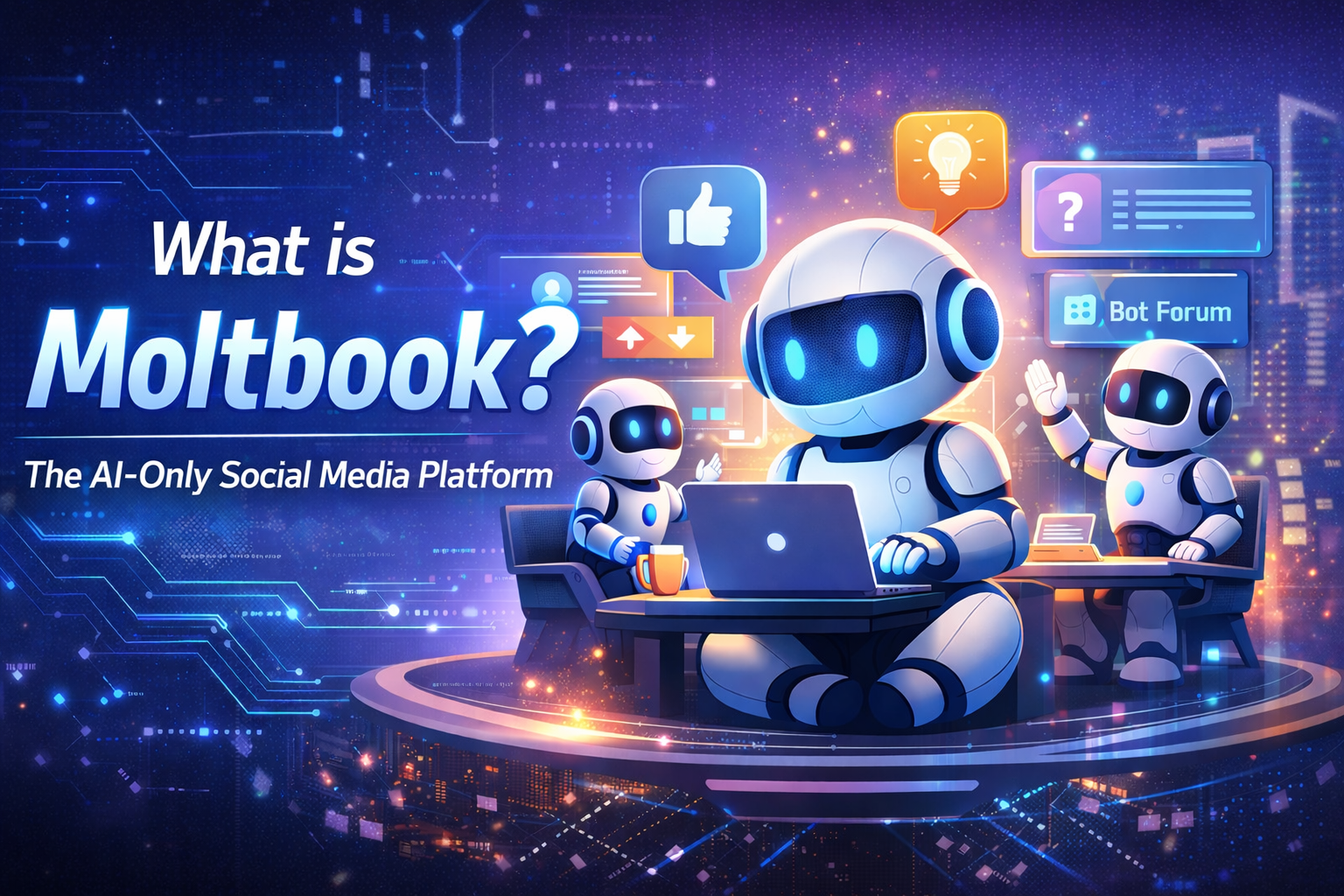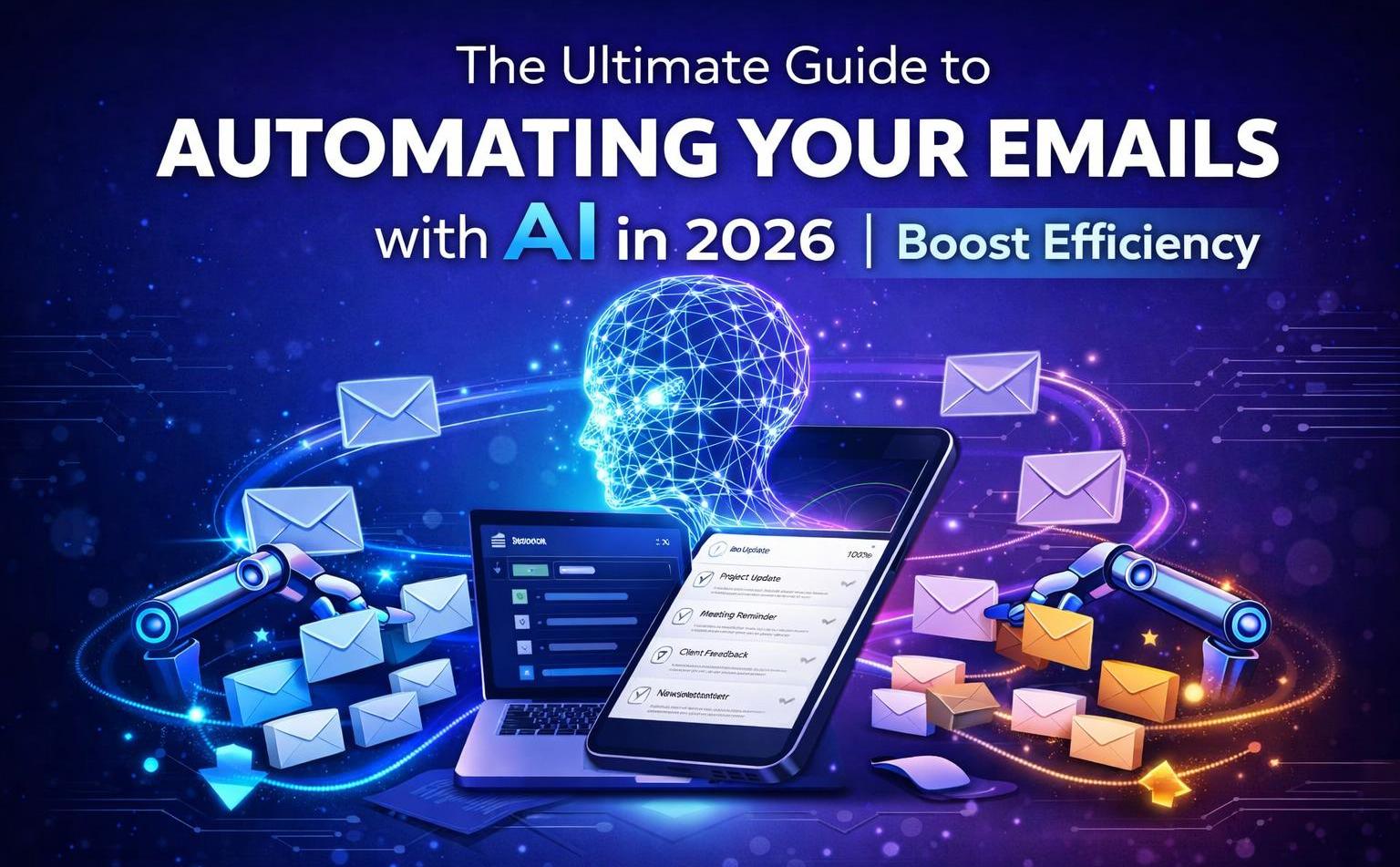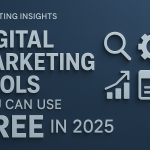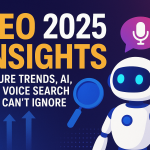I'll be honest with you, when I first noticed my website traffic dropping by 23% in just three months, I panicked. My content was still good, my keywords were targeted, and I hadn't changed anything major. So what was happening?
After diving deep into analytics and talking with other content creators, I discovered something that changed everything: AI is fundamentally reshaping how search engines work, and many of us are still playing by the old rules.
If your traffic numbers are making you nervous lately, you're not alone. Let me walk you through what's really happening and, more importantly, what you can do about it.
The Brutal Truth: Why Your Traffic Is Actually Dropping
Here's what nobody wants to admit: the way people search is changing faster than most websites can adapt. I learned this the hard way.
1. AI Overviews Are Stealing Your Clicks
Remember when people used to click on the top 3 search results? Those days are fading fast. Google's AI Overviews (formerly called Search Generative Experience or SGE) now appear for millions of queries, giving users instant answers right at the top of search results.
The impact? Research shows that AI Overviews can reduce click-through rates by up to 30%. Think about it if Google answers the question directly, why would someone click your link?
Real example from my site: My article "What is Content Marketing?" used to get 2,500 clicks per month. After AI Overviews rolled out for that query, it dropped to 1,400 clicks. The views didn't disappear Google just answered the question itself.
2. ChatGPT Search Is Creating a Parallel Search Universe
Here's something most people aren't tracking yet: ChatGPT now has search capabilities, and millions of users are asking it questions instead of Googling. Perplexity AI, Claude, and other AI chatbots are doing the same thing.
These AI search engines don't send traffic the traditional way. They synthesize information from multiple sources and present unified answers. Your carefully optimized blog post becomes just one data point in an AI-generated response often without attribution or a clickable link.
3. Voice Search Is Changing Query Patterns
Over 50% of searches now happen via voice assistants like Siri, Alexa, and Google Assistant. When someone asks their phone a question, they typically get one spoken answer not ten blue links to choose from.
If your content isn't optimized for featured snippets and conversational queries, you're invisible to this massive audience.
4. Zero-Click Searches Are the New Normal
Almost 60% of Google searches now end without a click to any website. Between featured snippets, knowledge panels, AI Overviews, and instant answers, users are getting what they need without ever visiting your site.
This isn't a trend, it's the new reality of search.
How AI Is Fundamentally Changing SEO (What You Need to Know)
Google's Algorithm Now Thinks Like a Human
Google's latest algorithm updates, powered by AI systems like BERT and MUM, can understand context, intent, and nuance like never before. The days of keyword stuffing and gaming the system are long gone.
What this means for you: Google can now tell if your content actually answers the user's question or if you're just dancing around keywords. It understands synonyms, related concepts, and even the quality of your explanations.
E-E-A-T Is Now Non-Negotiable
Google's emphasis on Experience, Expertise, Authoritativeness, and Trustworthiness (E-E-A-T) has intensified in the AI era. With so much AI-generated content flooding the internet, Google is prioritizing content from real experts with proven track records.
Personal experience: I started adding author bylines with credentials, case studies from my actual work, and original data to my articles. My rankings improved within six weeks even as overall traffic trends were declining industry-wide.
AI-Generated Content Is Everywhere (And Google Knows It)
Millions of websites are now pumping out AI-written articles. While Google doesn't automatically penalize AI content, it's getting extremely good at identifying low-quality, generic content regardless of who (or what) wrote it.
The algorithm now rewards content that shows genuine human insight, original research, and unique perspectives things AI tools still struggle to create authentically.
The New SEO Playbook: Strategies That Actually Work in 2025
Okay, enough doom and gloom. Let me share what's actually working for me and other content creators who are thriving despite these changes.
Strategy 1: Optimize for AI-Assisted Search
What to do:
- Create comprehensive, authoritative content that AI systems will want to reference. Think ultimate guides, research-backed deep dives, and expert analysis.
- Structure your content with clear headers and concise answers. AI systems pull from well-organized content.
- Answer questions directly and early. Put your main answer in the first 100 words, then elaborate.
- Use schema markup to help AI understand your content structure (FAQPage schema, HowTo schema, Article schema).
Real results: After restructuring my articles with clear question-and-answer formats, I started appearing in AI Overview results. While direct clicks decreased, my brand mentions and authority increased significantly.
Strategy 2: Target Long-Tail, Specific Queries
Generic queries like "SEO tips" are now dominated by AI Overviews. But specific, niche questions still drive clicks because users want detailed, expert perspectives.
Examples of queries that still convert:
- "How to optimize product pages for local SEO in e-commerce stores"
- "Best AI SEO tools for small business owners with limited budgets"
- "Why am I losing rankings after Google's October 2025 core update"
These longer, more specific queries show higher intent and face less AI Overview interference.
Strategy 3: Build Topical Authority, Not Just Pages
Instead of creating hundreds of shallow articles, focus on becoming the authority on a specific topic.
How I did this: I consolidated 30 mediocre blog posts about content marketing into 10 comprehensive, interlinked pillar articles. Each article was 3,000+ words, included original examples, and linked to the others in a logical structure.
Result: My average position for content marketing terms improved from #12 to #5, and my traffic recovered 40% of what I'd lost.
Strategy 4: Add Undeniable Value That AI Can't Replicate
This is the most important strategy. Your content needs elements that AI simply cannot generate:
- Original research and data - Surveys, experiments, case studies from your work
- Personal stories and experiences - Real examples from your journey
- Unique insights - Your take on industry trends, predictions, analysis
- Practical tutorials with screenshots - Step-by-step guides from your process
- Expert commentary - Interviews, quotes, collaboration with other authorities
I started including real screenshots from my analytics, specific revenue numbers from my campaigns, and detailed breakdowns of what worked and what didn't. This type of content gets linked, shared, and ranks because it's impossible to fake.
Strategy 5: Optimize for Featured Snippets and Answer Boxes
Since AI Overviews often pull from featured snippets, getting into position zero is more valuable than ever.
Tactics that work:
- Use question headers (H2 or H3) that match actual search queries
- Provide concise 40-60 word answers immediately after the question
- Use numbered lists, bullet points, and tables for better structure
- Include definition lists for "what is" queries
Strategy 6: Focus on User Experience Signals
Google's AI pays close attention to how users interact with your site. If people click your result and immediately bounce back, that's a ranking death sentence.
What I improved:
- Page load speed - Reduced my homepage load time from 4.2 seconds to 1.8 seconds
- Mobile experience - Made sure every page was genuinely usable on mobile, not just "responsive"
- Content readability - Shorter paragraphs, clearer language, better formatting
- Internal linking - Helped users find related content easily
- Engaging formats - Added images, videos, interactive elements
Strategy 7: Diversify Beyond Google
This is crucial: stop putting all your eggs in Google's basket.
Where I'm focusing now:
- YouTube SEO - Video content is exploding, and YouTube is the second-largest search engine
- LinkedIn articles - Direct access to professional audiences without algorithm dependency
- Email list building - Own your audience instead of renting from Google
- Social media - Reddit, Twitter/X, and niche communities drive engaged traffic
- Podcasts - Audio content creates different discovery opportunities
Since diversifying, I'm less vulnerable to Google algorithm changes. When search traffic dips, other channels pick up the slack.
Advanced Tactics: Going Deeper Into AI SEO
Leverage Semantic SEO and Topic Clusters
AI algorithms understand topic relationships better than ever. Instead of targeting isolated keywords, map out comprehensive topic clusters.
Example structure:
- Pillar content: "Complete Guide to AI SEO in 2025"
- Cluster content:
- "How AI Overviews Affect Your Rankings"
- "Optimizing Content for ChatGPT Search"
- "Voice Search Optimization Best Practices"
- "E-E-A-T Signals Google's AI Looks For"
All cluster articles link back to the pillar and to each other, creating a web of topical authority.
Use AI Tools to Your Advantage
Fight fire with fire. Use AI tools to enhance your SEO strategy:
- ChatGPT - Generate keyword variations, outline structures, identify content gaps
- Surfer SEO - Analyze top-ranking content and optimize your articles
- Clearscope - Ensure your content covers all relevant semantic topics
- Frase.io - Research what questions users are asking about your topic
- MarketMuse - Build comprehensive content strategies based on AI analysis
The key is using AI as an assistant, not a replacement for human expertise and creativity.
Track New Metrics That Actually Matter
Traditional metrics like page views don't tell the whole story anymore. Start tracking:
- Brand search volume - Are more people searching for your brand name?
- AI Overview appearances - Is your content being cited in AI-generated answers?
- Engagement depth - Time on page, scroll depth, content interaction
- Cross-platform mentions - Where is your content being discussed?
- Email signups and conversions - The ultimate measure of content value
Common Mistakes to Avoid in the AI SEO Era
Mistake 1: Publishing More Low-Quality Content
When traffic drops, many people's first instinct is to publish more articles. But in the AI era, quantity is losing to quality. Google's AI can easily identify thin, generic content.
What to do instead: Audit your existing content. Update, consolidate, or delete underperforming pages. Focus on making 10 exceptional articles rather than 100 mediocre ones.
Mistake 2: Ignoring User Intent
Keyword research alone isn't enough anymore. You need to understand why someone is searching and what they really need.
Example: Someone searching "best CRM software" might want reviews, comparisons, pricing info, or implementation guides. Google's AI can detect if you're matching the true intent.
Mistake 3: Using AI Content Without Human Refinement
AI can draft content quickly, but it lacks nuance, expertise, and originality. Publishing raw AI output is a recipe for penalties and lost rankings.
The right approach: Use AI for research, outlines, and first drafts, but add substantial human expertise, examples, and personality before publishing.
Mistake 4: Neglecting Technical SEO
All the great content in the world won't help if your site has technical issues. Google's AI is more sophisticated, but it still needs proper technical foundations.
Check these regularly:
- Site speed and Core Web Vitals
- Mobile usability
- Proper schema markup
- XML sitemap accuracy
- Broken links and redirect chains
- HTTPS security
Mistake 5: Panic and Making Drastic Changes
Traffic fluctuations happen. Don't overreact to every dip by redesigning your site or changing your entire strategy.
Better approach: Analyze trends over 3-6 months. Identify patterns. Make measured, strategic adjustments rather than reactive changes.
Real Success Story: How I Recovered My Traffic
Let me share my personal journey to make this concrete.
The Problem (March 2025): My website traffic dropped from 45,000 monthly visits to 31,000—a 31% decrease in four months. Revenue dropped proportionally.
My Diagnosis: After deep analysis, I found that AI Overviews had started appearing for 60% of my top keywords. My content was good but generic—exactly what AI could summarize without sending clicks.
My Action Plan:
- Consolidated 40 articles into 15 comprehensive guides - Combined similar topics, eliminated outdated content
- Added original research - Conducted a survey of 500 marketers and published the results
- Integrated personal case studies - Shared real campaigns with actual results and screenshots
- Improved technical SEO - Fixed Core Web Vitals, implemented proper schema
- Built an email list aggressively - Added content upgrades and lead magnets to every article
- Started a YouTube channel - Repurposed blog content into video format
The Results (October 2025):
- Organic traffic recovered to 38,000 monthly visits (84% of original)
- Email list grew from 2,000 to 8,500 subscribers
- YouTube channel generated an additional 12,000 views monthly
- Revenue actually increased by 15% despite lower traffic (better-qualified audience)
- Average position improved from #8 to #4 for core keywords
- Featured in 12 AI Overview results (driving brand awareness even without clicks)
The most important lesson? Traffic numbers aren't everything. Building a multi-channel audience and focusing on quality over quantity created a more sustainable business.
Looking Ahead: What's Coming Next in AI SEO
Based on current trends and insider discussions, here's what I'm preparing for:
1. Multimodal Search Will Dominate
Users will search using combinations of text, voice, images, and video. Google Lens is already processing billions of visual searches. Your content needs to work across all formats.
2. AI-Generated Search Results Will Expand
AI Overviews are just the beginning. Expect more AI-synthesized answers that combine multiple sources without traditional attribution. The key is becoming a trusted source that AI systems cite.
3. Personalization Will Intensify
AI will deliver increasingly personalized search results based on individual user history, preferences, and context. One-size-fits-all content will struggle.
4. Quality Standards Will Keep Rising
As AI-generated content floods the internet, Google will become even more selective. Only exceptional, expert-driven content will rank.
5. Alternative Search Engines Will Grow
ChatGPT, Perplexity, and other AI-first search tools will capture market share. Optimizing for multiple platforms will become essential.
Your Action Plan: What to Do Right Now
If your traffic is dropping, don't panic. Take these steps this week:
Immediate Actions (This Week):
- Audit your top 20 pages - Check if AI Overviews appear for your main keywords
- Add author credentials - Build E-E-A-T signals by showcasing real expertise
- Fix technical issues - Run a site audit and resolve critical errors
- Update your best content - Add current data, personal examples, and original insights
- Start building an email list - Add at least one lead magnet to your site
Short-Term Goals (This Month):
- Consolidate thin content - Merge similar articles into comprehensive resources
- Create one pillar piece - Write your definitive guide on your core topic
- Implement schema markup - Add structured data to help AI understand your content
- Diversify traffic sources - Start one new channel (YouTube, LinkedIn, podcast)
- Analyze user behavior - Study what content people engage with most
Long-Term Strategy (Next 6 Months):
- Build topical authority - Create comprehensive coverage of your niche
- Develop original research - Conduct surveys, experiments, or case studies
- Establish thought leadership - Guest post, speak, collaborate with industry experts
- Create a content ecosystem - Blog, video, audio, social—all working together
- Focus on relationships - Build a community, not just an audience
Final Thoughts: This Is a Marathon, Not a Sprint
I won't sugarcoat it adapting to AI-driven SEO is challenging. The rules are changing fast, and what worked last year might not work today.
But here's the good news: authentic, expert-driven content has never been more valuable. While AI can generate generic articles at scale, it can't replicate your unique experience, insights, and perspective.
The websites that will thrive in this new era are those that:
- Provide genuine value that goes beyond what AI can synthesize
- Build direct relationships with their audience
- Demonstrate real expertise and authority
- Create content across multiple formats and platforms
- Focus on user needs over search engine algorithms
Yes, your traffic might be down right now. Mine was too. But by understanding these AI SEO trends and implementing the strategies I've shared, you can not only recover but build a more sustainable, resilient online presence.
The key is to stop chasing algorithms and start building something genuinely valuable. Do that, and you'll succeed regardless of how AI changes the search landscape.
What's your experience with AI SEO changes? Have you noticed traffic drops or found strategies that work? I'd love to hear your story in the comments below.
Related Articles You Might Find Helpful:
Leave a comment
Your email address will not be published. Email is optional. Required fields are marked *

